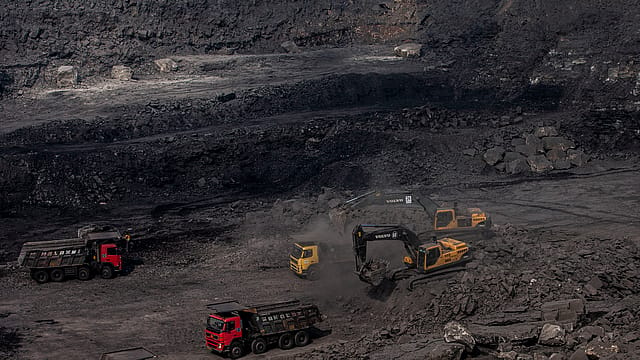SC ruling on state taxes credit negative for mining companies: Moody's
ADVERTISEMENT

Retrospective taxes on mining activities are credit negative for companies with mining operations in India such as Tata Steel, UltraTech Cement, JSW Steel and Vedanta Resources because the instalment payments will dent their cash flows, according to Moody’s.
At the same time, these companies will have to pay state taxes going forward that will hurt their profitability, the credit rating agency says.
On August 14, the Supreme Court of India ruled that state taxes on mining activities can apply retrospectively from 1 April 2005. The ruling follows the top court's July 25 judgment that state governments can tax companies for mining activities. The retrospective taxes will be paid in instalments over 12 years starting April 1, 2026. Interest and penalties are waived on tax demands issued before July 25, 2024.
While the companies' retrospective taxes could be significant, the effect on their cash flows will be eased because owed taxes will be paid in instalments over 12 years beginning April 1, 2026, says Moody’s. Companies' ability to pass on higher costs to customers could also mitigate the effect on their profitability. However, the new taxes as well as denting cash flows, could prompt them to recalibrate their capital spending plans.
January 2026
Netflix, which has been in India for a decade, has successfully struck a balance between high-class premium content and pricing that attracts a range of customers. Find out how the U.S. streaming giant evolved in India, plus an exclusive interview with CEO Ted Sarandos. Also read about the Best Investments for 2026, and how rising growth and easing inflation will come in handy for finance minister Nirmala Sitharaman as she prepares Budget 2026.
Tata Steel and JSW Steel will incur additional operating costs because they produce iron ore and coking coal from their mines to supply to their steel plants. Tata Steel sources 100% of its iron ore and 25% of its coking coal from its own captive mines, while JSW Steel sources 33% of iron ore from its captive mines. In the companies' fiscal 2023-24, Tata Steel mined 36 million tons (mt) of iron ore and 6 mt of coking coal, while JSW Steel mined 25.9 mt of iron ore.
Tata Steel mines iron ore and coking coal in Odisha and Jharkhand, while JSW Steel mines iron ore in Odisha and Karnataka and coking coal in Jharkhand. The mineral tax schemes in Karnataka and Odisha are still unclear. On August 2, the Jharkand assembly passed a bill imposing a tax of ₹100 per ton for coal and iron ore, ₹70 per ton for bauxite and ₹50 per ton for manganese ore and other minerals.
Tata Steel is the only company to have prudently earmarked contingent liabilities relating to state taxes on mining activities in its financial statements. On 31 July, the company disclosed that it recorded $2.1 billion of contingent liability for mining activities in Odisha in its financial statements as of 30 June 2024. On 14 August, the company said that it is assessing the financial impact of the Supreme Court rulings.
Retrospective taxes at JSW Steel are likely to be modest since its iron ore mines were recently awarded by the government from 2018-19. The company makes bid premium payments for its mines to the government which are nearly 100% of the market price, in contrast with older mines that are not required to do so.
During its fiscal 2023-24, Vedanta's operations in India produced 1.079 mt of mined zinc and 5.6 million dry metric tonnes of iron ore, and 0.83 mt of pig iron. UltraTech produces limestone at its pan-India operations, that supported its cement sales of 119 mt in fiscal 2023-24. Both companies will incur additional operating costs with respect to their mining operations.
“We expect the completion of brownfield expansion projects and hence higher sales volume at Tata Steel and JSW Steel over the next two years to boost earnings, hence easing the impact of the new state taxes,” says Moody’s.
